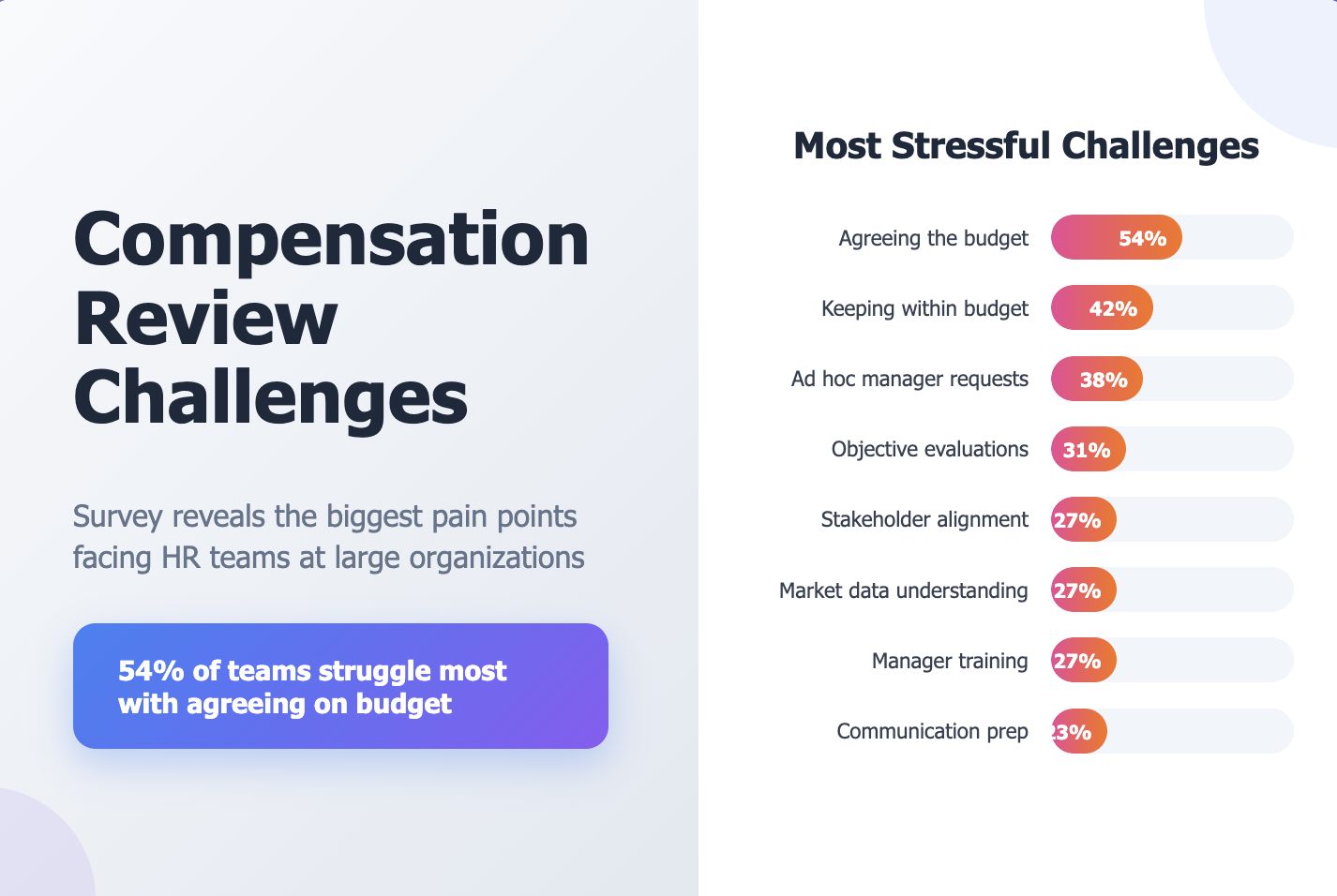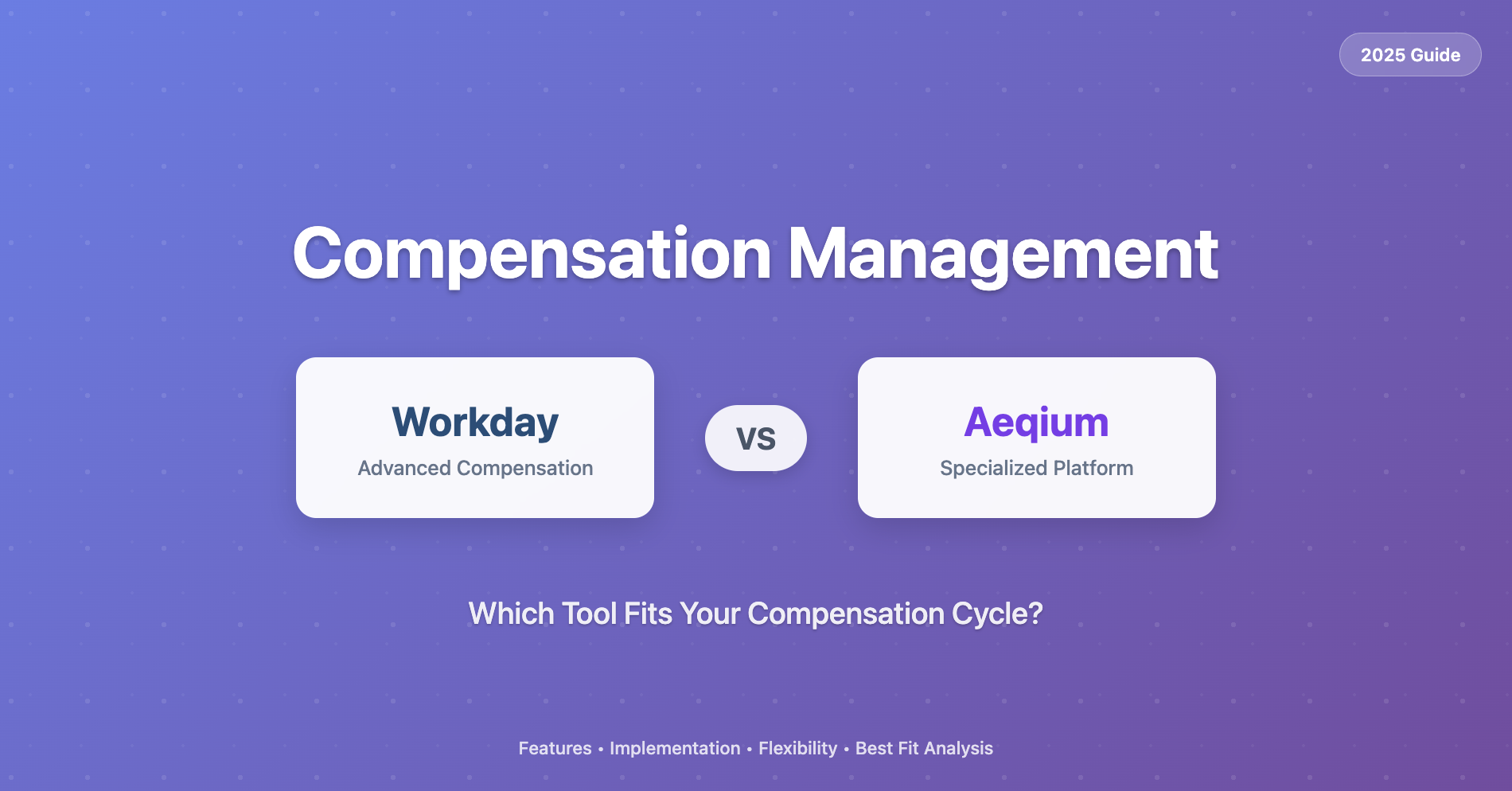Compensation Planning: A Complete Guide to Salary Benchmarking

Effective compensation planning requires robust salary benchmarking to ensure market competitiveness. In this comprehensive guide, Michael Downey, Director of Total Rewards at DataRobot, shares expert insights on building and maintaining effective benchmarking strategies, particularly for tech companies managing rapid growth and emerging roles.
Building Your Compensation Planning Foundation
Establishing Salary Benchmarking Framework
Essential components:
- Clear salary bands structure
- Reliable market data sources
- Job architecture alignment
- Regular data validation
Key Benchmarking Sources
Primary data sources:
- Employer-submitted surveys
- Industry-specific databases
- Market compensation data
- Supplementary trend sources
Creating Effective Salary Bands
1. Start with Job Architecture
Key steps:
- Group similar roles
- Define level descriptions
- Create anchor positions
- Establish clear hierarchies
2. Validate Market Data
Essential practices:
- Use multiple data sources
- Verify data quality
- Check sample sizes
- Monitor market trends
3. Implement Structured Reviews
Regular assessments of:
- Salary bands effectiveness
- Market competitiveness
- Internal equity
- Role evolution
Best Practices for Compensation Planning
Data-Driven Decision Making
- Market Analysis
- Track industry trends
- Monitor competitor offerings
- Analyze salary movements
- Review market premiums
- Internal Assessment
- Review current salary bands
- Check internal equity
- Monitor role evolution
- Track compensation effectiveness
Managing Emerging Roles
- Market Assessment
- Gather available data
- Review similar roles
- Consider industry factors
- Analyze market demand
- Strategic Planning
- Define value proposition
- Set competitive positioning
- Plan investment strategy
- Build flexibility
Expert Insights on Benchmarking
Michael Downey emphasizes key success factors:
"You need to have two trusted data sources just starting out. If you can buy previous year's data as well, which often you can, that gives you even more context for decision-making."
Implementation Steps
- Build Strong Foundation
- Establish data sources
- Create clear processes
- Define review cycles
- Document methodology
- Maintain Data Quality
- Regular updates
- Multiple validations
- Trend monitoring
- Continuous improvement
- Strategic Alignment
- Executive buy-in
- Clear communication
- Regular reviews
- Market adjustments
Planning for Success
Effective compensation planning requires:
- Reliable benchmark data
- Clear salary bands
- Regular market reviews
- Strategic alignment
Essential Tools
Modern compensation planning relies on:
- Market data tools
- Compensation planning software
- Analytics platforms
- Benchmarking databases
Want to learn more about implementing effective compensation planning and benchmarking strategies? Contact the Aeqium team for expert guidance and solutions.




